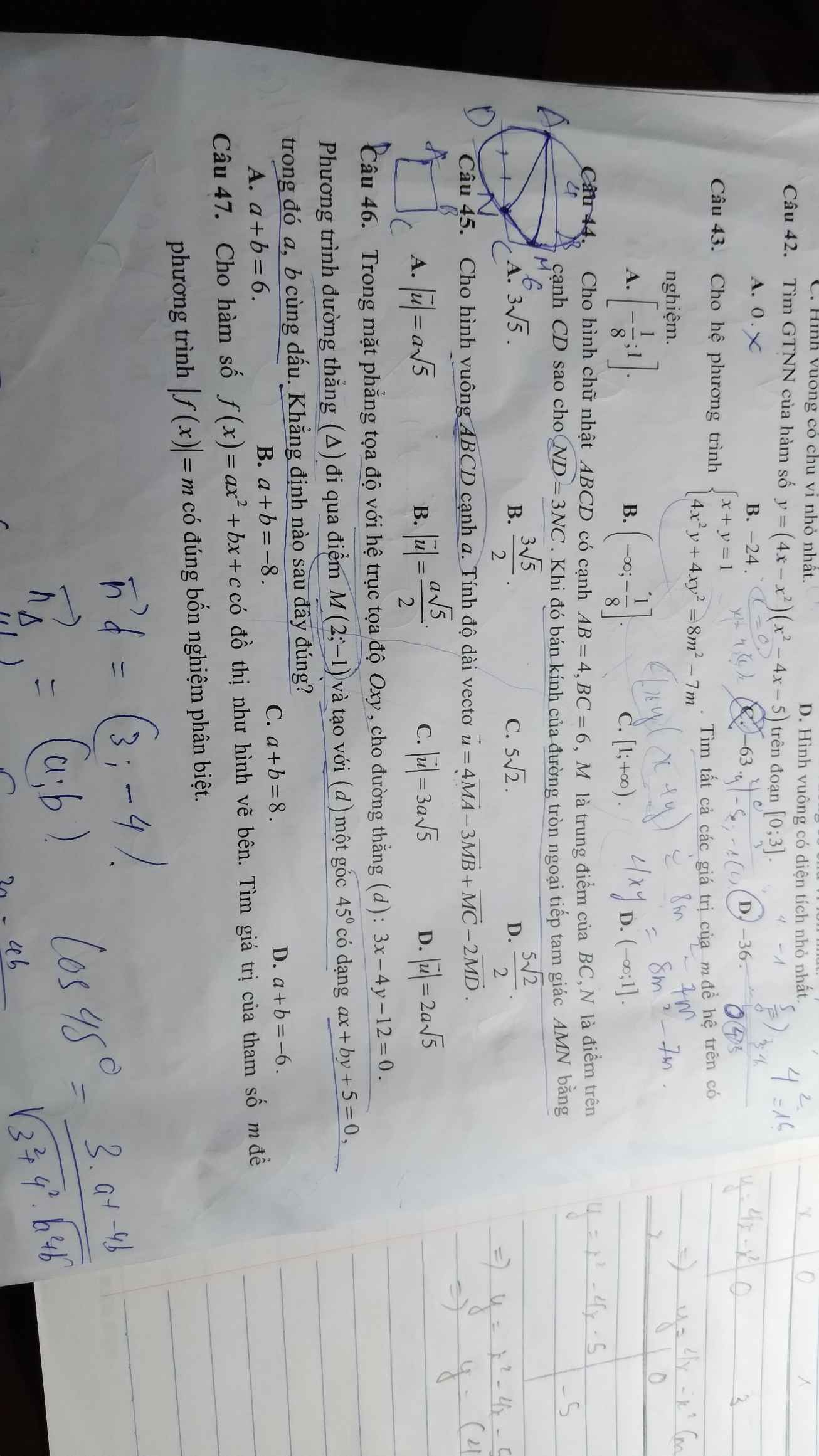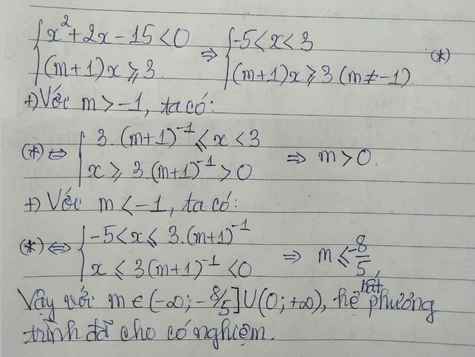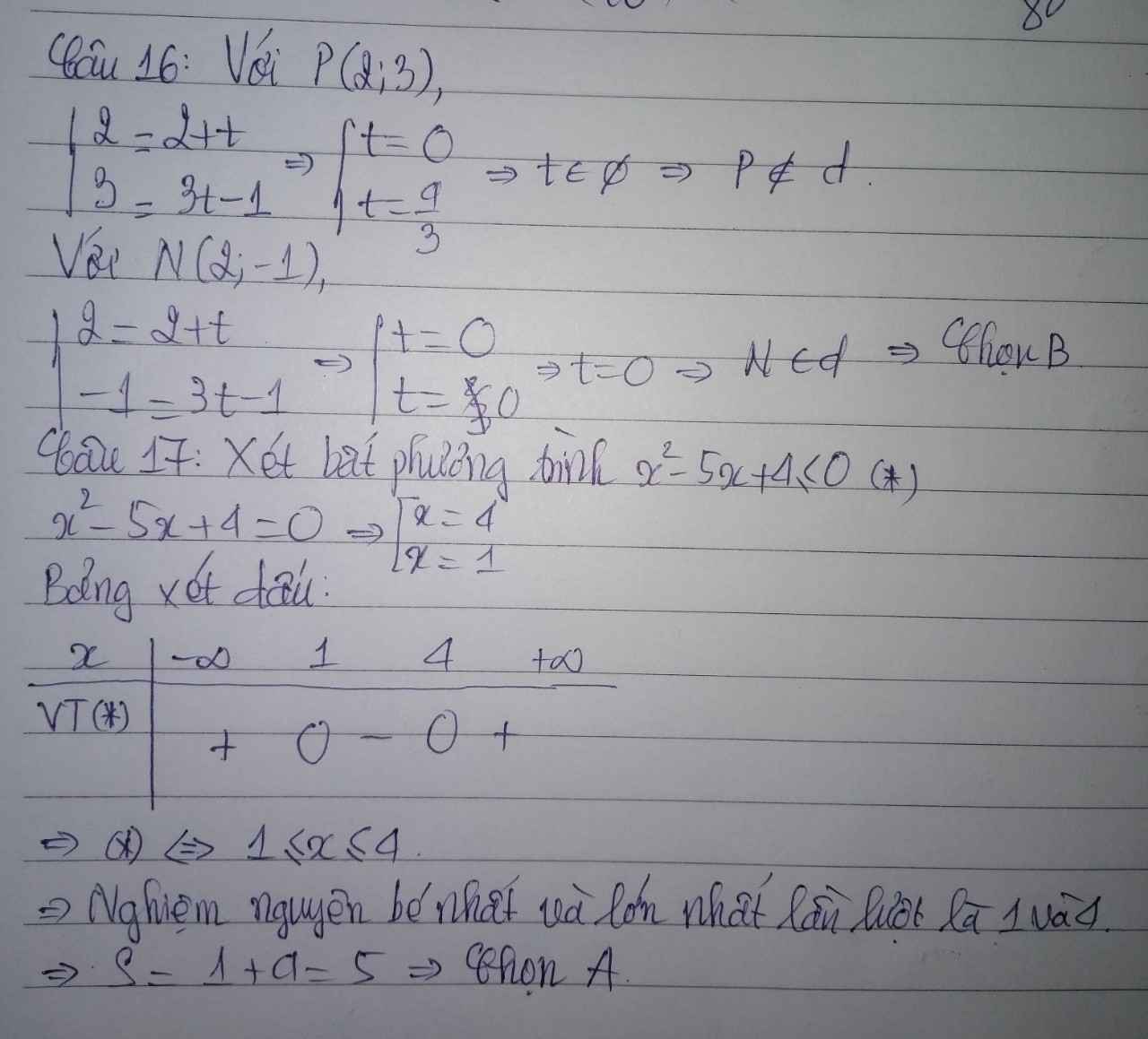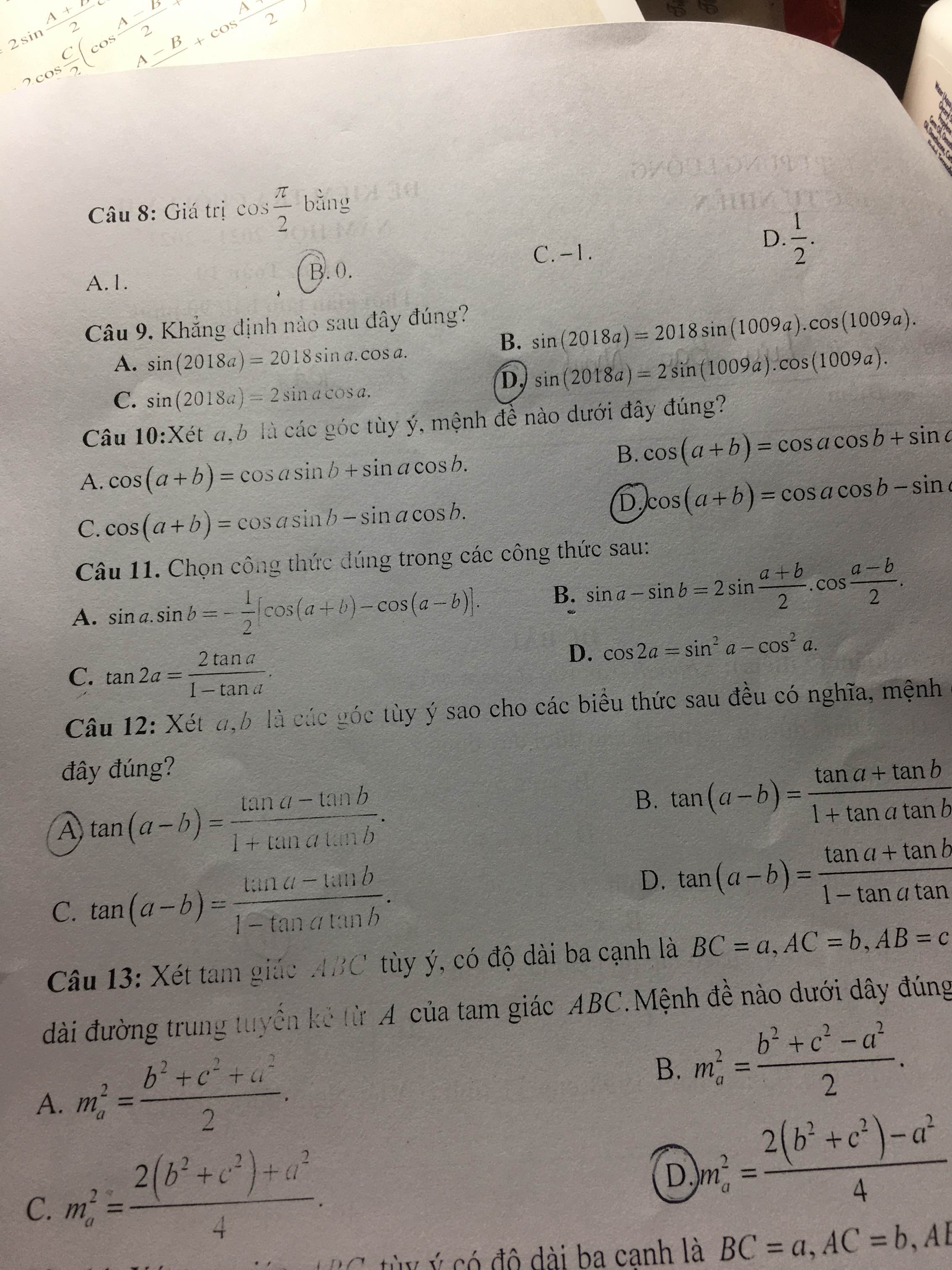
Hãy nhập câu hỏi của bạn vào đây, nếu là tài khoản VIP, bạn sẽ được ưu tiên trả lời.


Câu 42:
Δ1: VTPT là (m;-1)
Δ2: VTPT là (2;-1)
Để Δ1 vuông góc Δ2 thì m*2+(-1)*(-1)=0
=>2m+1=0
=>m=-1/2


a) \(d\left(A;\Delta\right)=\dfrac{\left|4.1-3.3+2\right|}{\sqrt{4^2+\left(-3\right)^2}}=\dfrac{3}{5}\)
b) \(\overrightarrow{AB}=\left(-3;-2\right)\) là VTCP của đường thẳng d
PT tham số của d: \(\left\{{}\begin{matrix}x=1-3t\\y=3-2t\end{matrix}\right.\left(t\in R\right)\)
c) Đường tròn (C) có bán kính \(R=AB=\sqrt{\left(1+2\right)^2+\left(3-1\right)^2}=\sqrt{13}\)
PT đường tròn (C): \(\left(x-1\right)^2+\left(y-3\right)^2=13\)

1b)
Song song => (d): x-y +a =0
Vì d đi qua C(2;-2) => 2- (-2)+a=0
<=>a=4
=> d: x-y+4=0


\(sina.sinb=-\dfrac{1}{2}\left[cos\left(a+b\right)-cos\left(a-b\right)\right]\) là công thức đúng

a: Gọi (d1): ax+by+c=0 là phương trình đường thẳng cần tìm
(d1) vuông góc (d)
=>(d1): 10x+4y+c=0
Thay x=2 và y=3 vào (d1), ta được:
c+20+12=0
=>c=-32
=>10x+4y-32=0
c: (d): x=1-2t và y=3+4t
=>VTCP là (-2;4)=(-1;2)
=>(d1) có VTPT (-1;2)
mà (d1) đi qua M(2;-3)
nên (d1): -1(x-2)+2(y+3)=0
=>-x+2+2y+6=0
=>-x+2y+8=0
b: (d1) vuông góc (d)
=>(d1): y=0x+b
Thay x=-1 và y=2 vào (d1), ta được:
0*(-1)+b=2
=>b=2
=>(d1): y=2












\(\overrightarrow{u}=4\overrightarrow{MA}-3\left(\overrightarrow{MA}+\overrightarrow{AB}\right)+\overrightarrow{MA}+\overrightarrow{AC}-2\left(\overrightarrow{MA}+\overrightarrow{AD}\right)\)
\(=-3\overrightarrow{AB}+\overrightarrow{AC}-2\overrightarrow{AD}=-3\left(\overrightarrow{AB}+\overrightarrow{AD}\right)+\overrightarrow{AC}+\overrightarrow{AD}\)
\(=-3\overrightarrow{AC}+\overrightarrow{AC}+\overrightarrow{AD}=-2\overrightarrow{AC}+\overrightarrow{AD}\)
\(\overrightarrow{u}^2=\left(-2\overrightarrow{AC}+\overrightarrow{AD}\right)^2=4AC^2-4\overrightarrow{AC}.\overrightarrow{AD}+AD^2\)
\(=4\left(a\sqrt{2}\right)^2-4.a\sqrt{2}.a.cos45^0+a^2=5a^2\)
\(\Rightarrow\left|\overrightarrow{u}\right|=a\sqrt{5}\)